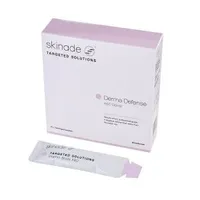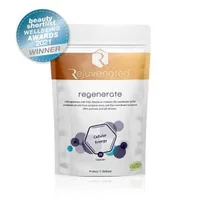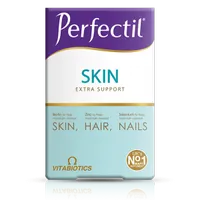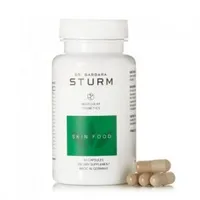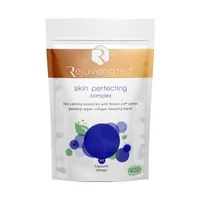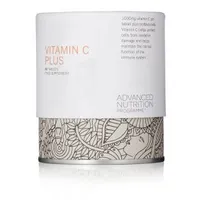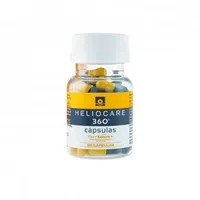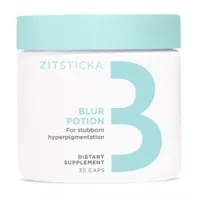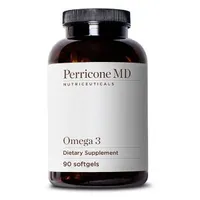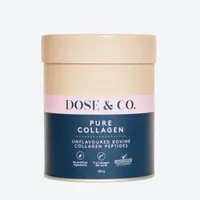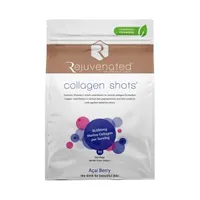Best vitamins for skin, according to the experts

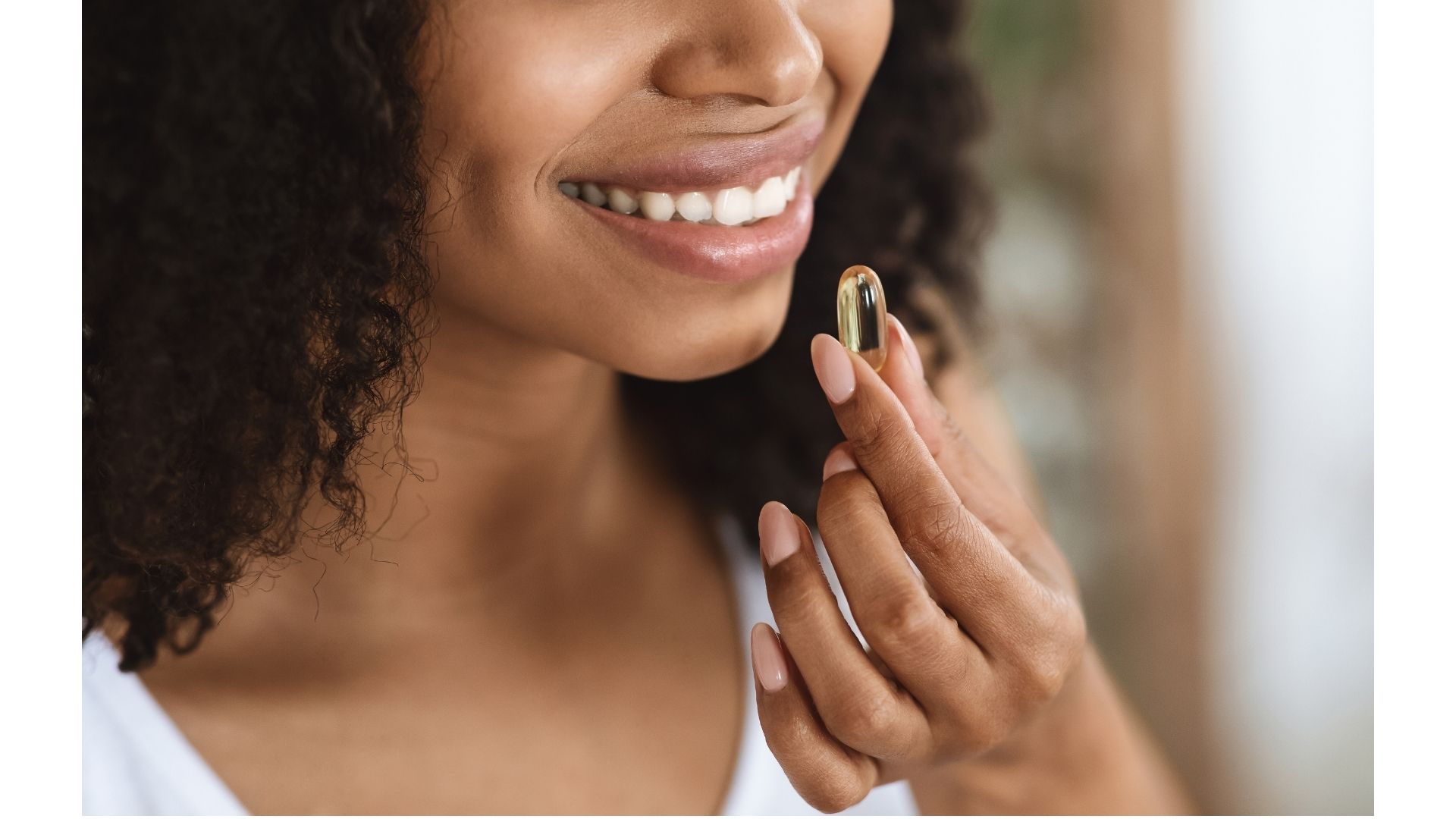
Parenting advice, hot topics, best buys and family finance tips delivered straight to your inbox.
You are now subscribed
Your newsletter sign-up was successful
The best vitamins for skin to help achieve a glowing, healthy complexion - as recommended by a doctor, a nutritionist and a skin therapist.
The best vitamins for skin will support its daily functioning and replace any nutritional deficiencies. Skin is the largest organ of the body and acts as a barrier between you and the outside world. But, it can also can show signs of what might be going on inside.
A balanced diet, regular exercise, genetics and effective skincare all contribute to great skin. If you're not getting enough vitamin D, you're not susceptible to lower energy levels and low mood - but your skin will be less capable of fighting against pollution or preventing flaky or itchy breakouts. The right vitamin rich foods will not only keep your skin glowing, but can also help to boost your immune system.
To find out more about the essential vitamins to get your skin in tip top condition, we spoke to Dr Toni Philips, Group Clinical Director of DestinationSkin; Libby Matthews, a qualified nutritionist, naturopath and founder of Dose & Co and Lisa Kordecki, Head Therapist at Skincity.
What are the best vitamins for skin?
Vitamins essential for great skin include; vitamins D, B, C, E, NAD+ and the protein, collagen peptides. If you're deficient in one or a few of these, skin problems may start to show. Some symptoms include dryness, acne, sallowness, texture issues and irritation. The vitamins are listed followed by the supplements we are recommending to get more of that vitamin into your diet.
1) Vitamin D/D3
Vitamin D or the 'sunshine vitamin' has a number of benefits like strengthening bones and muscles, improving mood and boosting immunity as well as promoting healthy skin but it’s vitamin D3 that you want to look out for when it comes to skin problems.
Vitamin D3 is the natural form of vitamin D that your body produces when you’ve been in sunlight and works to rejuvenate your cells and protect them from free radicals like pollution. Dr Toni explains, “Most of us are Vitamin D deficient, especially after the winter, and Vitamin D3 is also important for maintaining healthy skin. Vitamin D3 deficiency can cause skin problems such as dryness, flaking and itchy skin.” According to statistics collected by Forth With Life, 77% of UK adult females are deficient in vitamin D.
Skinade Targeted Solutions Derma Defence A&D Boost 30 day supply | £48
As an alternative to capsules, liquid sachets are fantastic for getting vitamins quickly into your system. Lisa suggests these to improve vitamin D levels, “help to make sure the body is getting optimal levels of both [vitamins] in a formula that is easily absorbed by the cells.
Rejuvenated Regenerate NAD+ 30 capsules | £48.50
Dr Toni suggests this formula too, “I like formulas that contain a blend of several key ingredients. A British brand that I love is called Rejuvenated. They have a wonderful product called ‘Regenerate’ which contains all the key skin ingredients, in 1-3 capsules a day.”
2) Vitamin B/B12
Recent studies have shown that regular intake of vitamin B contributes to normal and healthy production of cells and most people are often deficient. It can be tricky to understand which vitamin B you need so a vitamin B complex keeps all bases covered. “There are 8 B vitamins within the body, and they’re essential for cell growth, development and overall functioning,” says Libby.
The most effective type of vitamin B for your skin is vitamin B12, “Vitamin B12 deficiency most commonly causes acne, hyperpigmentation as well as dry, flaky and itchy skin,” says Dr Toni.
If you’re vegan, it can be difficult to maintain levels of vitamin B12 as they are most commonly found in animal products like meat, eggs, milk, cheese and fish so a dietary supplement is advisable.
Vitabiotics Perfectil Skin 56 tablets | £18.20
Look after your general health with an all-in-one tablet that contains everything you need for healthy skin. With vitamins B and C, this one-a-day will work to support your skins natural defences.
Dr Barbara Sturm Skin Food 60 capsules | £60
Vegan, full of botanical extracts and great for promoting hydration in the skin. These are fantastic for all-round skin health.
3) Vitamin C
If you don’t apply a topical vitamin C to your skin or you find it too irritating, try taking a vitamin C supplement instead. “Vitamin C is an antioxidant that can neutralise free radicals before they wreak havoc,’ explains Libby. ‘It reduces inflammation and helps to keep skin strong and firm, minimising the appearance of fine lines. Vitamin C activates cells called fibroblasts that make new collagen, thus giving you a complexion that appears smoother and more hydrated.”
Citrus fruits and berries are a great source of naturally occurring Vitamin C, and remember that there tends to be more of the nutrient in raw vs cooked food because of the way it reacts to heat exposure. but a daily tablet or oral spray can be great for daily top-ups. “[Vitamin C] will give the body and the skin an all-round boost,’ explains therapist Lisa. "If we look after our skin internally as well as externally we are more likely to see results with our skin."
Rejuvenated Skin Perfecting Complex 60 capsules
Containing vitamin C, zinc and a botanical blend of amino acids to calm inflammation, support collagen production and minimise fine lines. Nutritionist Libby rated these as, “A fabulous vegan supplement for all round skin health."
Advanced Nutrition Programme Vitamin C Plus 80 tablets | £23.99
Therapist Lisa recommends these vitamin C tablets, “Give your skin and body an all-round boost!” They’re full of ascorbic acid, the most potent form of vitamin C and will ensure your skin has a natural glow.
4) Vitamin E
Another useful vitamin for skin health is vitamin E. “Like vitamin C, vitamin E is an antioxidant. Its main function in skin care is to protect against sun damage. Vitamin E absorbs the harmful UV light from the sun when applied to the skin,” suggests Libby.
“And if you have particularly dry skin, vitamin E can help counteract a lack of sebum as well as helping to treat skin inflammation.”
Vitamin E can also be applied directly on the skin in the form of face cream or serum but nourish your skin from the inside too and you’ll see even greater results.
Heliocare 360 Capsules 30 capsules | £31
Daily use of sunscreen is vital to protect your skin from harmful UVA/UVB rays and can’t be replaced but you can also help your skin protect itself with these. Containing vitamin E and niacinamide, they work as a great antioxidant boost for your skin. “[They] are great for supporting the skin’s natural UV protection.” suggests Lisa.
Zitsticka Blur Potion 30 capsules | £48
According to skin therapist Lisa, “[People] just don't get enough Vitamin A from their diet so a supplement will help.” These capsules are full of Vitamin A and E, along with grape seed extract work to fade pigmentation in the skin and create an even skin tone.
5) NAD+ (Nicotinamide Adenine Dinucleotide)
If you haven’t heard of it, NAD+ is the latest vitamin promising great skin. It’s actually a form of vitamin B3, more commonly known as the skincare ingredient nicotinamide or niacinamide.
It might sound complicated but bear with us, “The big word in skin supplements right now is NAD+ which is an important molecule in our bodies that powers all our cells (including skin cells) to function optimally,” says Dr Toni. “The best supplements have high levels of a form of Vitamin B3 called nicotinamide. This will boost NAD+ levels, which decline with age, lead to skin ageing and an overall loss in energy.”
To put it simply, it goes to show how vital vitamin B complex supplements are to the skin and how multiple forms of this vitamin all contribute to the healthy functioning of skin cells.
Perricone MD Omega 3 90 capsules | £32
Libby also suggests that upping your intake of Omega 3’s to be beneficial, “This is a fish oil supplement derived from wild caught Alaskan salmon oil. It helps hydrate skin from the inside out and supports a healthy heart.”
6) Collagen Peptides
Not a vitamin but an essential protein that counteracts the effects of ageing in the skin; collagen peptides are a daily must-have.
As one of the building blocks of our skin, collagen serves a huge role in maintaining a healthy and youthful looking complexion. As we age, our natural collagen levels diminish significantly. “Collagen plays a huge role in skin health,’ explains Libby Matthews. ‘From the age of 25 our bodies produce 1% less collagen per year, leading to dryness, lines, wrinkles and loss of firmness. Collagen peptides not only help support nails and hair, but they help to strengthen skin, support elasticity and improve hydration.”
To avoid premature wrinkles from worsening and to keep skin looking plump, collagen peptides in the form of collagen drinks are your best option. Dr Toni agrees, “I’m a fan of liquid collagen drinks, which when taken daily, not only increase collagen in the dermis of the skin, but also benefit our joints and cartilage.”
Dose & Co Pure Collagen 200g | £26.99
As the founder, Libby designed this collagen to be incredibly versatile so you can even bake it into your food, “This product contains 10 grams of type 1 & 3 collagen per serving to support skin health. It can be added to all liquids and baked goods.”
Rejuvenated Collagen Shots 30 servings | £43.95
Dr Toni also suggested the collagen powder from Rejuvenated for plumping skin and reducing wrinkles, “A beautiful collagen powder which you mix with a little water and take daily.”
Do vitamin supplements work?
If you’re sceptical about vitamin supplements helping skin issues and delaying the ageing process, we don’t blame you. Some people argue that we get all our basic nutritional needs from our food but this concept does not consider those that can’t eat all the food groups, like vegans. The best vitamins for skin will keep all of your bases covered and won't allow you to become deficient.
So what do the experts think? Are skin vitamins worth our time and money? “Despite our best efforts to eat a healthy, balanced diet and maintain a good skin care routine, sometimes our busy, modern lifestyles mean that we need a little extra help,’ says Dr Toni. “As we age, certain cellular functions also decline, so supplementation is a great way to boost these processes so that our skin looks youthful. Supplements are quite rapidly cleared through our liver and kidneys, so need to be taken daily.”
Which vitamin deficiencies cause skin problems?
Nearly all vitamin deficiencies can cause a negative effect on the skin. From acne to psoriasis, dullness to dermatitis, it's essential to keep your basic nutrient levels topped up with some of the best vitamins for . Whether fresh fruits and vegetables aren't a main part of your diet or you're not getting enough daylight, you can rectify skin issues by taking a supplement.
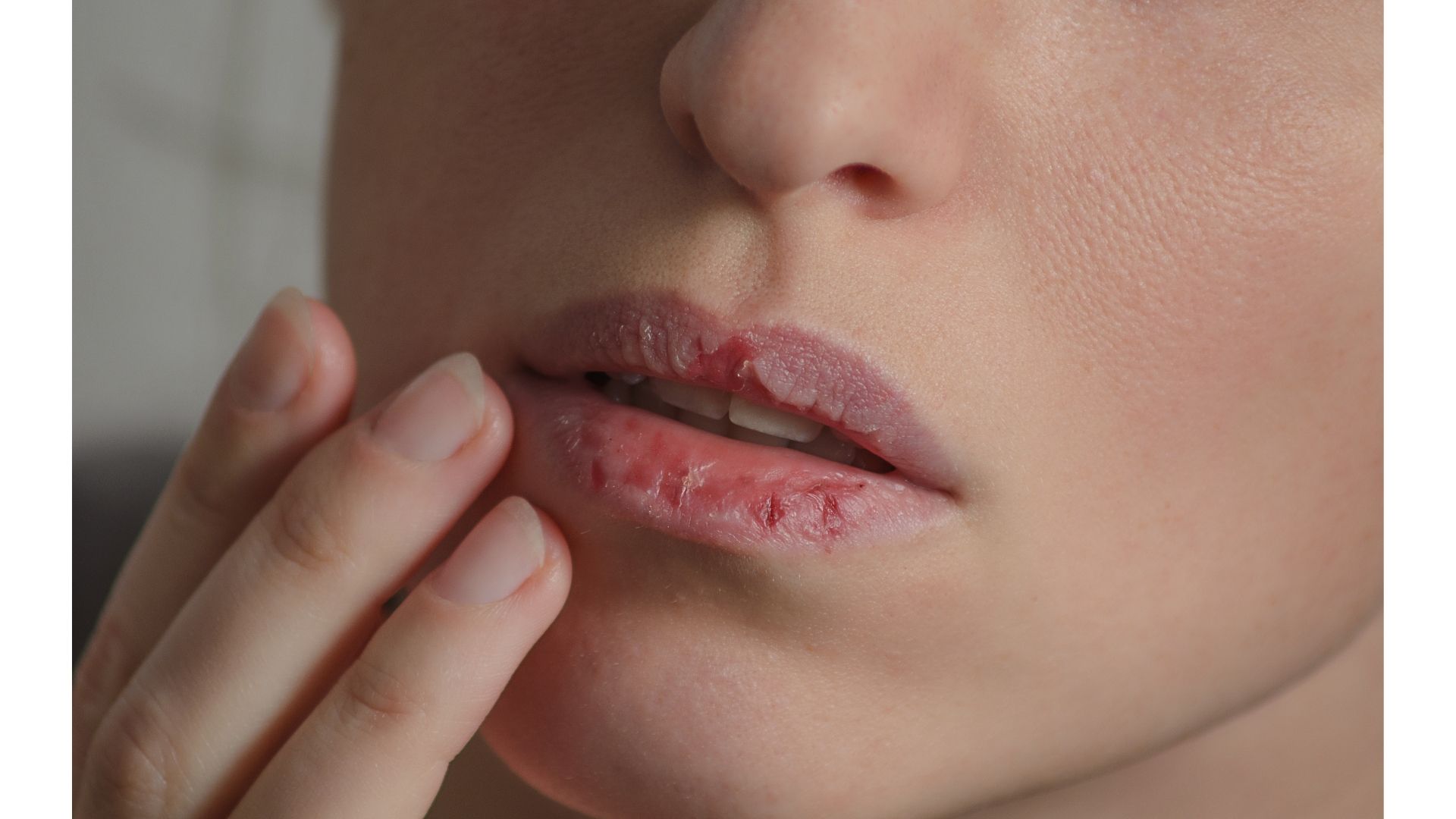
Psoriasis & Atopic Dermatitis
The most common vitamin deficiency, in the UK, is vitamin D. Our position in the Northern Hemisphere means we're inclined to get less vitamin D than those living nearer the equator. Upping your Vitamin D intake is crucial if you're suffering from psoriasis or atopic dermatitis. This is why these inflammatory conditions are often worse during winter months, when less sunlight is available.
Hyper-pigmentation & Dryness
Skin issues such as acne, hyper-pigmentation and dryness can be difficult to treat if the underlying cause isn’t found and sometimes these problems are just an unavoidable factor of getting older. But, keeping up with your nutrition can often mitigate the chances of skin issues occurring. “A vitamin B deficiency can wreak havoc on your skin causing rashes, acne, dry skin, cracked lips and wrinkles,” says Libby. You may find that by incorporating a vitamin B complex supplement into your diet, that some of these issues can be resolved.
Acne
Similarly, Libby suggests that low levels of zinc (not a vitamin but a mineral) can be detrimental to the skin. “Zinc is an essential mineral that helps the body inside and out,” she explains. “It has anti-inflammatory effects that are beneficial for acne and scarring. It regulates cell production turn-over and can help reduce the amount of natural oil your skin produces – it may prevent pores from clogging in the first place.”
Our daily nutrition mostly comes from the food we eat. Fruits and vegetables, protein, complex carbohydrates and healthy fats all contribute to skin health but deficiencies can still occur. If you are seriously worried about vitamin deficiencies impacting your health, it’s worth speaking to your GP who can organise a blood test to investigate further.
Parenting advice, hot topics, best buys and family finance tips delivered straight to your inbox.

Emma North is a Senior Beauty Writer who works for digital titles including woman&home, Woman, Woman’s Weekly, Woman’s Own, Chat and GoodtoKnow. Emma’s career in beauty journalism began with internships at publications including Vogue, Elle, The Telegraph and Glamour while she undertook a degree in journalism. She was then taken under the wing of Funmi Fetto, Contributing Beauty Editor at Vogue where Emma assisted with Funmi’s debut beauty book, Palette
